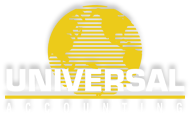For small business owners, reconciling your books can feel like searching for a needle in a haystack: you know something is off, but what it could be, and how to find it is a mystery. Fortunately, most reconciliation errors fall into just four categories, so that can at least help you narrow down the problem.
Those four categories are:
- Mistakes
- Timing differences
- Missing transactions
- Fraud
Understanding how these different kinds of discrepancies arise can make it easier to reconcile your books.
What is Reconciliation in Accounting?
Before we get into the details, let’s talk briefly about what accounting reconciliation is. According to Investopedia, “Reconciliation is an accounting process that compares two sets of records to check that figures are correct and in agreement. Account reconciliation also confirms that accounts in the general ledger are consistent, accurate, and complete.” By comparing your accounting records to an outside source of those same transactions — like a bank statement or a credit card statement — you have proof that your numbers are right.
Without regular reconciliation of your books, it’s easy for mistakes to creep in, propagate, and multiply. Reconciliation is the best way to make sure that your numbers are right. Now let’s get into the details of each of the four categories.
Common Mistakes
Mistakes can range from simple transposition of numbers to recording the transaction completely wrong, and can arise at any point in the accounting process. Maybe someone punched in the wrong numbers when they recorded the transaction. Or maybe a journal entry has the debits and credits reversed. A customer invoice might be wrong, or perhaps a payment got recorded for the wrong invoice. A previous reconciliation might have matched the wrong transactions.
Banks can make mistakes too. Maybe a check was written for $761, but the bank recorded it as $767. Bank feeds can break, and the same transactions might get imported multiple times, or maybe not at all. Or it could be a fraudulent transaction, in which case, you’ll need to talk to your bank as soon as possible.
Mistakes often pop out at the end of a reconciliation when you can see the transactions on the bank or credit card side that don’t match those in your books. By comparing the entries that don’t match, you can usually narrow down the problem. Then, by locating the documentation for the original transaction or transactions, you can usually see what the problem was.
Timing Differences
Timing differences happen when a deposit or a payment on your books hasn’t cleared the bank yet. This used to happen more frequently when payments by check were more common, and when the actual physical checks had to be mailed between banks before they could clear. But these days, with electronic payments and mobile deposits, bank and credit card transactions show up within hours or days, not weeks.
When timing issues do show up these days, they’re frequently at the end of a month or year, when businesses are trying to get payments out the door. For example, a business puts a stack of bill payments in the mail on Wednesday, December 30, 2020, but because of the holiday, those checks don’t clear the bank of the recipients until sometime after January 4, 2021.
Sometimes timing differences arise because of an underlying mistake: a payment got recorded on the books as paid August 15, 2019, but it was actually paid on August 15, 2018. A mistake like that might show up in the bank reconciliation module for your software, where it’s easy to mark it as having been paid, but that same payment won’t be in the general ledger balance on August 31, 2018.
Missing transactions
As I mentioned above, bank feed problems can result in some transactions not being imported correctly. A more common cause is fees or interest on the bank statement or credit card that hasn’t been recorded on the books yet. That’s why it’s always a good idea to check for unrecorded fees or interest before you start reconciling that bank account or credit card.
Sometimes transactions just get missed. No matter how diligent you are at bookkeeping, things do occasionally slip through the cracks. If this happens every month, then maybe it’s time to hire an outside bookkeeper, or invest in some automation tools.
Fraud
Fraud and embezzlement don’t always show up as reconciliation discrepancies, at least at first glance. Clever fraudsters will do things like write checks to themselves, then change the accounting records so that the check appears to be written to a legitimate vendor. Or they may write a check to a bogus vendor with a name eerily similar to a real vendor. Some will even go as far as creating fake bank statements. These types of fraud can only be detected with careful attention to details, such as ensuring that the payees on check images in a bank statement match those in the books.
If there is little or no oversight, fraudsters may be bold enough to openly write checks or transfer funds to themselves. Or they may use the company credit card for purchases that are clearly unrelated to the business, such as paying their child’s private school tuition, or making cash withdrawals at a casino.
In either case, many types of frauds can be detected quickly with segregation of duties. This means that the business owner or another responsible person should carefully review all bank and credit card statements before turning those statements over to a different person for account reconciliation.
Regular Reconciliation Keeps Your Books Accurate
Without regular reconciliation, discrepancies, mistakes, and omissions can propagate until all the numbers in your financials become suspect. It’s hard to tell if you’re hitting your goals if you can’t trust your numbers. Unreliable financial statements can be a big problem come tax time, or if you need funding from a bank. But with regular reconciliations, you’re no longer searching for needles in a haystack. Instead, you’re fully in control of your business and your financials.
Universal Accounting’s online training programs will put you on the path to providing expansive accounting services to your clients, and you’ll be paired with academic and marketing coaches to help you apply what you learn with clients. To learn more about how you can get started, call Universal Accounting Center at 877-801-8080. Or, set a time to discuss how you can achieve your professional goals when it’s convenient for you HERE.
Share this post: on Twitter on Facebook on Google+





